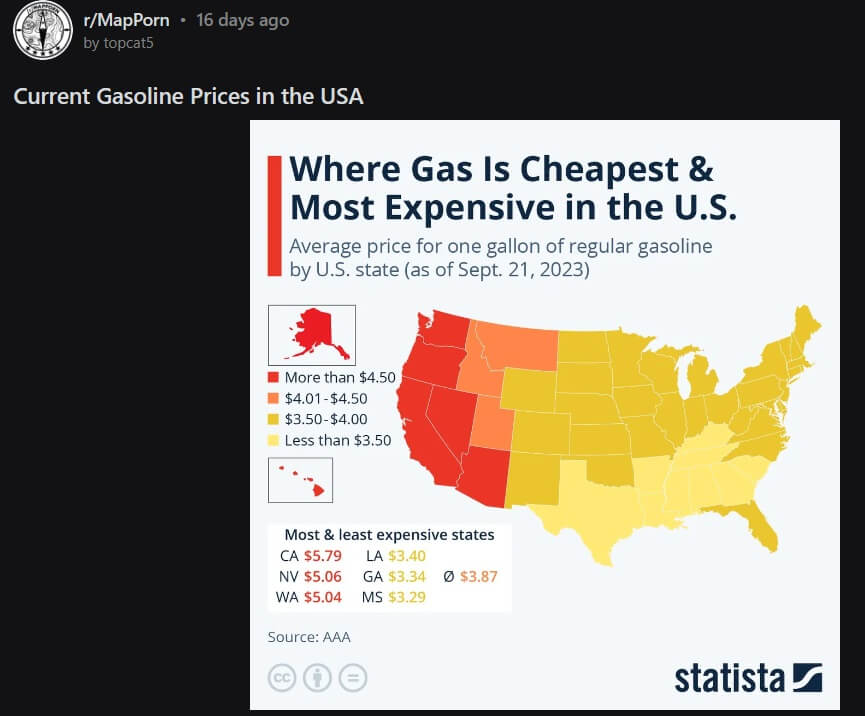According to new data released by AAA, gasoline currently costs over $3.50 per gallon in all but nine states in the United States. The data on current gas prices was compiled into a map by Statista and then posted to Reddit, where Redditors lamented the cost of owning a gas-powered vehicle.
The map shows that gas is currently the most expensive in California ($5.79 per gallon), Nevada ($5.06 per gallon), and Washington ($5.04 per gallon).

"If only there was some other way to power things other than gas," one commenter facetiously wrote.
Transportation is the most significant contributor to planet-warming pollution, accounting for over 16% of global carbon pollution, and a typical car produces over 10,000 pounds of carbon pollution per year.
As the facetious commenter suggested, there is a way to power cars other than gas and limit this pollution — electric vehicles. EVs produce much less negative environmental impact than gas-powered cars and have sharply risen in popularity over the past few years.
In addition to producing no planet-overheating tailpipe pollution, EVs are generally cheaper to own and maintain than traditional cars in the long run, in no small part because they do not require expensive gas.
However, the initial cost to get an EV in the U.S. can be prohibitive for many consumers. The most reliably inexpensive one on the market has been the Chevy Bolt, which currently starts at $27,495 (not counting the $7,500 electric vehicle tax credit).
"Or a way to get around other than a car," another commenter replied to the first commenter.
As that commenter indicated, the best way to address the negative environmental impacts that car transportation has wrought would be by dramatically increasing our public transit infrastructure, as many experts have advocated.
"Public transportation gets people where they're going while emitting far fewer climate-warming greenhouse gases than private cars," the MIT Climate Portal wrote. "The reason is simple efficiency: while cars usually carry just one or two people at a time, a bus can carry 50 or more, and a train in a large city may carry thousands."
TCD Picks » Upway Spotlight
💡Upway makes it easy to find discounts of up to 60% on premium e-bike brands
China, for example, boasts a robust high-speed rail system that delivers passengers all over the country quickly and efficiently while running on electricity. But the U.S. seems to lack the political will, unfortunately, to create a similar system.
Join our free newsletter for cool news and actionable info that makes it easy to help yourself while helping the planet.














